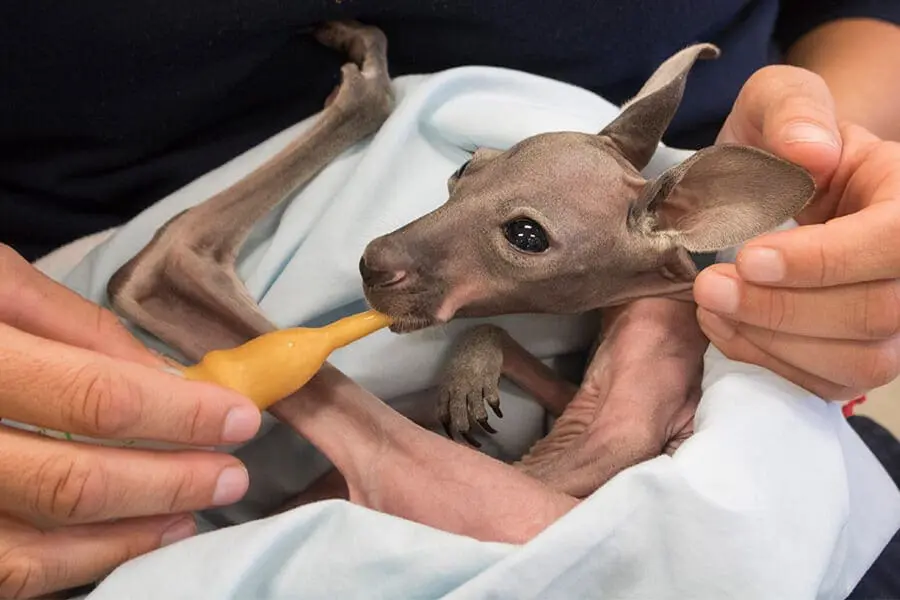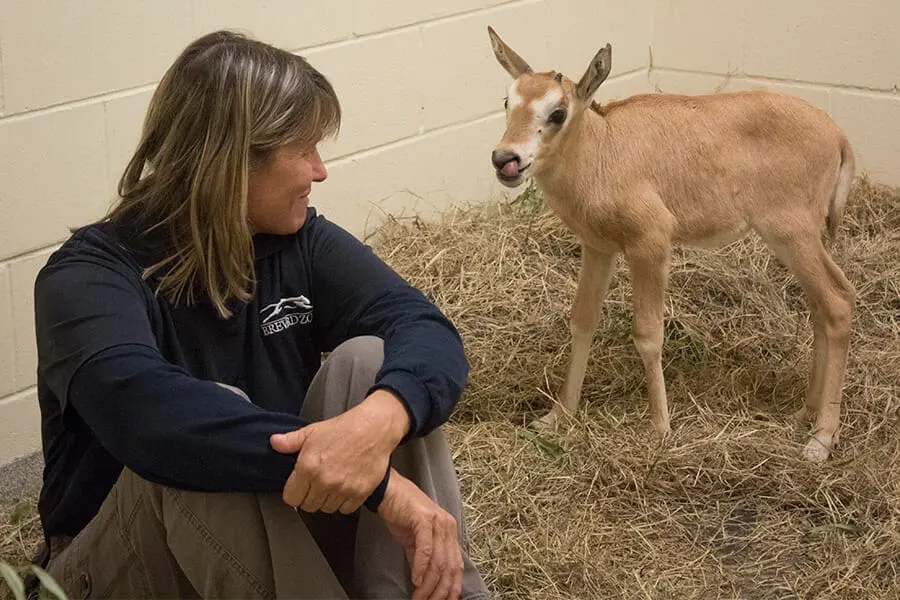

Lilly the red kangaroo joey is bottle fed by collections manager Lauren Hinson.
Human mothers provide their children the nutrition, protection and skills they need to survive and thrive. The same is true for most of the Zoo’s mammals and birds, but sometimes animal moms aren’t up for the challenge. That’s when our animal care team needs to intervene.
“We want our animals to be raised by their own parents whenever possible,” said Michelle Smurl, director of animal programs at the Zoo. “Hand-rearing an animal can be a risky, time-consuming and expensive endeavor, so we only step in as a last resort. That being said, when we do make the decision to hand raise an animal, we give it our all.”
On the morning of January 23, keepers found a small joey on the floor of the kangaroo barn. Her mom, Jacie, was likely spooked by an unusually strong thunderstorm the previous evening. Several attempts were made to reunite the two, but Jacie just wasn’t interested, so we made the difficult but necessary decision to hand raise the joey.
Collections manager Lauren Hinson assumed most maternal responsibilities, shuttling the joey from home to work and back each day to provide constant care; in the beginning, this included a bottle feeding once every four hours (even in the middle of the night). As the joey grew and her needs became less intensive, other keepers stepped in to care for the little one by assisting with feedings and carrying her around in an artificial pouch.
The joey, now known as “Lilly,” still goes home with Hinson each night, but their days together are numbered. In a few months, the two will go their separate ways and Lilly will become a fully integrated member of our kangaroo mob.

Gracie greets one of her caretakers.
February was an exciting month as we welcomed two new scimitar-horned oryx. On February 3, experienced mom Danica gave birth to a male calf and they bonded immediately. Unfortunately, the same could not be said for Kitcha, who failed to nurse her own calf when she gave birth for the first time on February 28. Our animal care team was quick to action yet again and the young female, given the name “Gracie,” has been receiving specialized care from a collective group of human “moms.” Thanks to the team’s hard work, Gracie is thriving and is now being slowly reintroduced to the herd!
On March 20, four cockatiels hatched in the aviary. All were healthy and happy, but the two larger chicks began “picking on” their siblings and plucking out their pin feathers. The smaller pair was quickly removed from the nest and “adopted” by Smurl. She determined the chicks were dehydrated and having trouble digesting food, so she flushed their crops and provided a diluted formula developed for chicks. Since each bird digests food at a different rate, Smurl was on watch 24/7, providing both of them an individual feeding schedule. These young birds are now doing well and were introduced to a small flock of cockatiels being cared for by our education staff.